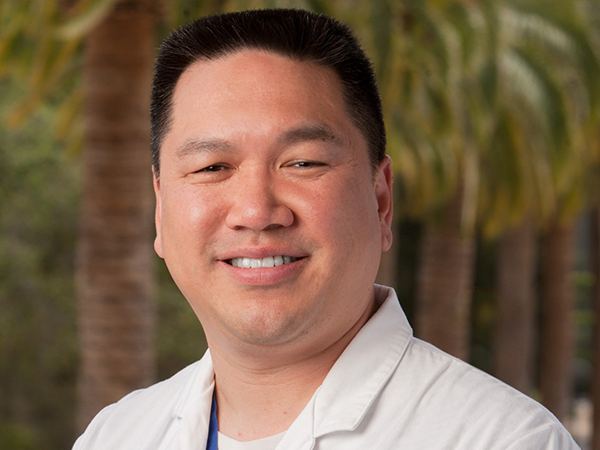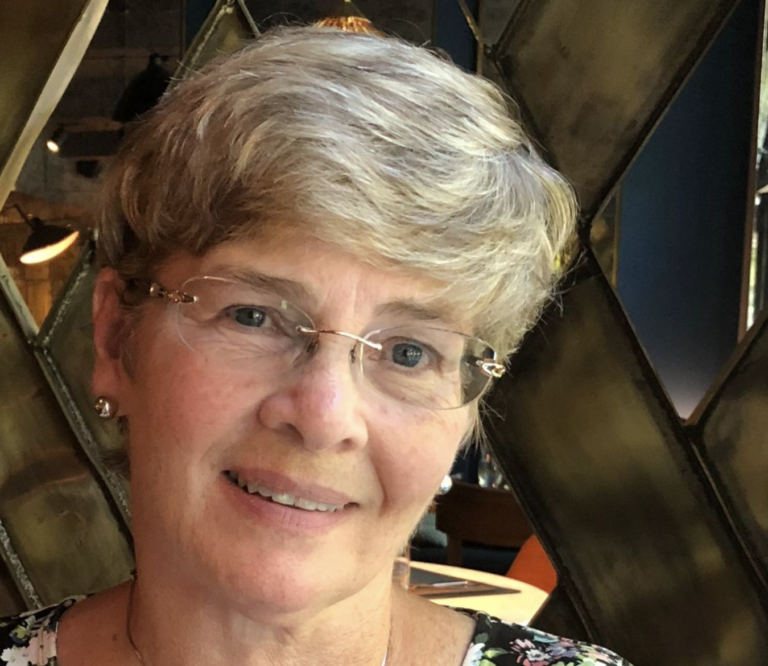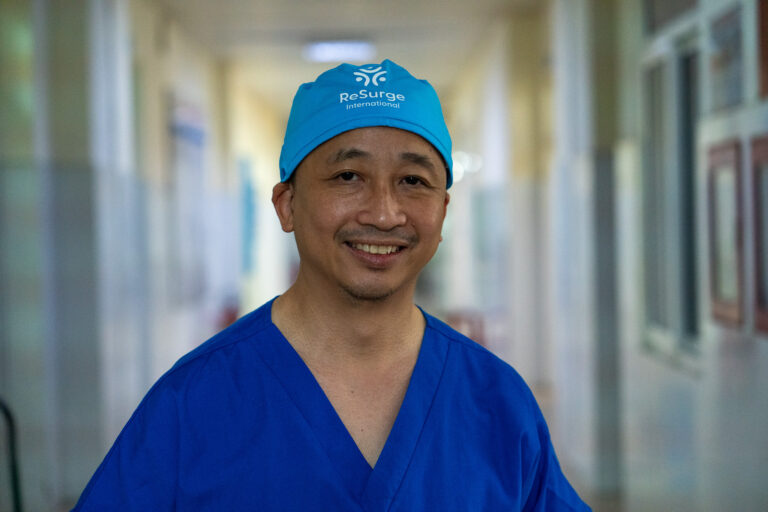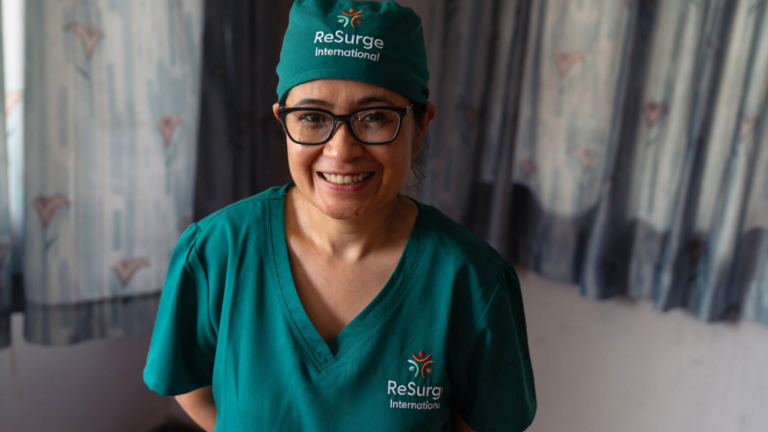At ReSurge International, our reconstructive surgical care and training transforms the lives of thousands of people each year. We are always adapting to deliver the greatest scalable and sustainable impact to those who need it most. One of the ways we do that is through our visiting educator and virtual training programs. We connect some of the world’s greatest minds and institutions with local surgeons in low-income countries to build capacity and strengthen local systems.
One such ‘great mind’, is Dr. Gordon Lee, an internationally recognized reconstructive surgeon from Stanford, specializing in microsurgery. Dr. Lee has been a ReSurge International volunteer and educator for over 15 years.
Dharshan Sivaraj, a ReSurge medical student volunteer, sat down with Dr. Gordon Lee to learn more about his transformative work with ReSurge, and how he believes ReSurge’s approach is shaping the future of global surgery. Check out their interview below!
How were you introduced to ReSurge International?
As a medical student at Stanford back in the 1990s I was very familiar with ReSurge International, or what was formerly named Interplast. I had always maintained an interest in one day doing international work and being able to travel and help people in other countries.
When I became faculty at Stanford, I connected with Dr. James Chang, the division chief of plastic surgery. Dr. Chang became the new chief medical consultant at ReSurge in 2014, and was starting to do some exciting and innovative things. He was moving ReSurge in a whole new direction. He started to get faculty at Stanford involved, and more importantly, he used his global network of connections to recruit surgeons – and that’s exactly how he got me involved.
Where was your first trip with Resurge?
The first trip I went on with ReSurge was to Zimbabwe. It was a wonderful experience and I will never forget it. It really exceeded all my expectations of what I thought international work was going to be, and it took me to a whole new level of appreciation of medicine and the reason why I wanted to become a doctor, which is to help people.
Do you have a memory of a patient from a ReSurge affiliated trip that has stuck with you?
Oh, too many to count I’m afraid. Most notably, in Cuba there was a young woman who was missing half of her jaw. She had had a tumor removed, and they were not able to reconstruct the resulting defect. She was young, I think she was 22, but half of her face was basically sunken into her chest, and she was also not able to eat very well. One can imagine what this does to a young person at that age. So, we did a complex reconstruction with a free fibula flap. The surgery went really well.
By the time we left to return to the States, she was still in the hospital, but because I was able to go back to Cuba again later, as part of continuity of care, I was able to see her again. When she came back to the hospital she was completely changed as a person. She had been so depressed and sad when I first met her but now, she was all healed. She was eating well and she also had a partner.
“While we don’t always do lifesaving surgery, often what we do is life-giving. For example, providing care for this young girl who had been living with a deformity and was ostracized from society. I think for her, the surgery we performed was life-giving. The quality of life that we can give to a patient is just as important as life-saving surgery. This is the power that ReSurge provides to the world.”
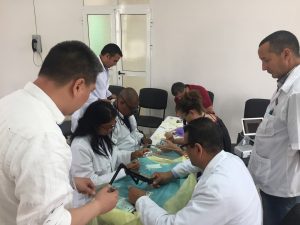
Have you been able to be involved with the educational component of ReSurge’s mission?
I think one of the transformational aspects of ReSurge is the commitment to teaching and educating. The focus of ReSurge has been teaching local surgeons. We teach them how to perform the surgeries, and maintain a continuity relationship where it’s not just a one-off thing, but we can go back sometimes multiple times a year to the same institution and continue to educate the local physicians who work there. So, when I went to Zimbabwe, as well as when I went to Cuba and Nepal, we absolutely incorporated education into the trips. I can’t emphasize enough that the goal of ReSurge is not just about doing surgeries. Part of it is doing surgeries, but a good portion of it is also educating physicians through lectures, through workshops, through any resource we have available to us – and that is what has been huge.
Can you expand on the importance of training and establishing local infrastructure?
It is vitally critical to establish a program of continual learning. ReSurge surgeons really partner with the local surgeons and teach them how to do these operations. These local surgeons are incredibly smart and motivated, and they want to learn new techniques to help their patients. That is the piece that is really transformational. It’s important for physicians to have some type of curriculum, and I use that word very intentionally. A curriculum must have goals, it must have objectives, and it must have an ability to measure your results so they can be to repeated and reproduced. You can’t teach reconstructive surgery techniques just in one day or even one week. It’s a continuous learning experience.
Because of COVID-19, we’ve had to seek out new ways to approach education. I think that’s where telehealth has been very important. In many ways, this is something that everyone should have incorporated a long time ago. Traditionally, we can go and visit these institutions once, twice, maybe three or even four times a year. But these are all very short bursts of education. The benefit of the new ReSurge virtual training is that we can have continual education, and the learning extends way beyond in-person education.
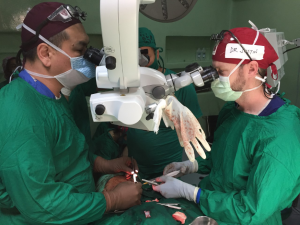
What are some of the types of operations that you have performed while teaching abroad?
My expertise is primarily in microsurgery. I would say in the most recent years, my educational focus has been centered on Cuba, which has a need for microsurgery. Since they do not do microsurgical tissue transfers, I went with a very large group of surgeons a few years ago and gave lectures over the course of several days to introduce the topic to the Cuban physicians. The Cuban healthcare professionals were very enthusiastic because they see a lot of very bad tumors that they have difficulty to treat since they don’t have the microsurgery training to reconstruct those types of defects. I have been out there several times and we usually do a combination of lectures, workshops, and surgery. I will typically have a curriculum set up for the week where, on a Monday for example, we will do lectures designed around the types of surgeries that are happening that week. In addition, we also do hands on labs and workshops. We then do surgeries on patients that correspond to the lectures. At the end of the week, we do a debriefing where we look at the patients and reflect on what went well and what didn’t go well, and what we can do to improve in the future. I may be biased, but I think it’s a very robust curriculum we have set up.
Are you optimistic about the potential for virtual training in conjunction with in-person trips?
Yes, I’m very optimistic. As we look towards the future, we’ll continue to have this type of hybrid education. Ultimately, I think the model that ReSurge has been adopting will shape the future and serve as a reference for other organizations. I also want to mention that we wouldn’t be able to do any of this without the support of ReSurge’s donors and those who believe in the mission of helping those less fortunate. I feel very lucky to be a part of ReSurge—I take nothing for granted. I think Dr. Chang and Jeff our CEO, have done a wonderful job along with everyone in the ReSurge family. They have been able to bring ReSurge to a whole new level.
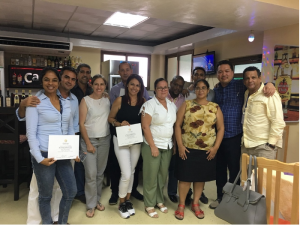
Dr. Gordon Lee is a Professor of Plastic Surgery at Stanford University. Dr. Lee completed his undergraduate education at the University of California Los Angeles (UCLA) with a Bachelor of Science degree in Biology and graduated magna cum laude. He attended medical school at Stanford University. He completed a combined residency in General Surgery and Plastic Surgery at UCLA Medical Center, where he was inspired by Dr. William Shaw, a pioneer in microsurgery and breast reconstruction, to pursue a career in academic plastic surgery. After residency, Dr. Lee completed an advanced microsurgery fellowship at the University of Texas M. D. Anderson Cancer Center in Houston, Texas. Dr. Lee is the Residency Program Director for Plastic Surgery, Director of Microsurgery, and the Associate Chief for Clinical Affairs. Dr. Lee is involved in the full range of oncologic reconstructive surgery at the Stanford Cancer Center in performing breast reconstruction, abdominal and pelvic reconstruction, head and neck reconstruction, and extremity reconstruction. Dr. Lee performs approximately 80-100 microvascular free flaps per year, and over 350 breast procedures per year.
Dr. Lee is recognized national and internationally for his clinical work and research in reconstructive surgical outcomes and surgical education. He was the 2015-2016 Plastic Surgery Foundation Visiting Professor, and has given lectures around the world. He was awarded the Residency Program Director of the Year in 2017, by the Stanford’s Department of Graduate Medical Education. He is a member of state and national plastic surgery societies, and serves on numerous committees. He is the Associate Editor for the Annals of Plastic Surgery, and Editorial Board member for Microsurgery Journal.

